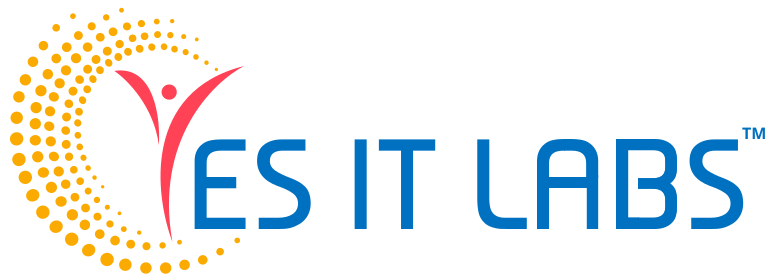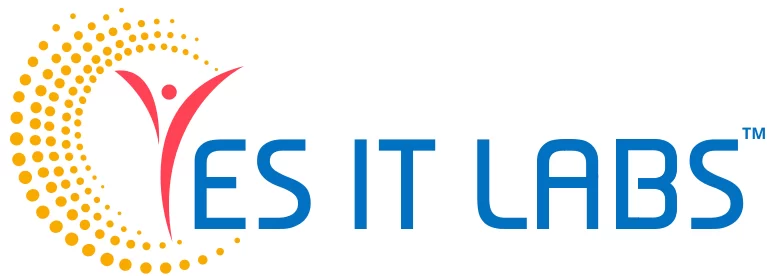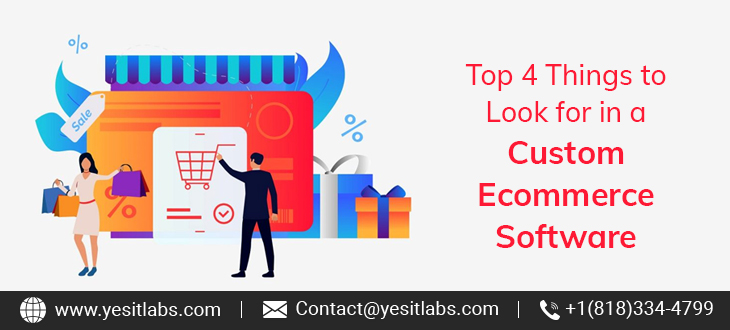In today’s digital-first world, businesses need a reliable and scalable Custom Ecommerce Software solution to stay ahead of the competition. The right software can help streamline operations, enhance customer experience, and drive revenue growth. However, choosing the best solution requires careful evaluation of key factors that impact performance, flexibility, and security.
With the increasing demand for online shopping, businesses must ensure they select an e-commerce platform that not only meets their current needs but also supports future expansion and technological advancements.
This guide will walk you through the most critical aspects to consider when selecting the perfect custom e-commerce platform for your business.
What Are Custom Ecommerce Services?
Custom e-commerce services refer to tailor-made solutions designed to meet the specific needs of an online business. Unlike generic platforms, custom e-commerce software provides greater flexibility, scalability, and unique features that align with a company’s business model.
These services include bespoke website development, third-party system integrations, personalized user experiences, automated inventory management, and secure payment processing. Businesses that require advanced functionalities or have complex operational workflows benefit significantly from custom solutions, as they ensure optimal performance, efficiency, and brand consistency across digital platforms.
Key Factors to Consider When Choosing Custom Ecommerce Software
1. Scalability: Future-Proofing Your Business
As your business grows, your e-commerce platform should be able to handle increased traffic, product listings, and customer interactions without compromising speed and performance. A scalable Custom Ecommerce Software should allow seamless expansion without costly infrastructure upgrades.
Benefits of a Scalable Ecommerce Platform
- Cloud-Based Solutions: Consider cloud-hosted platforms that offer flexible storage and processing capabilities to accommodate growth effortlessly.
- Load Balancing: Look for features that distribute traffic evenly to prevent server crashes during high-demand periods.
- Modular Architecture: A software solution that allows you to add or remove features based on business needs ensures adaptability without unnecessary costs.
- Global Expansion Support: If international expansion is a goal, ensure your software supports multiple currencies, languages, and region-specific regulations.
2. Customization and Flexibility: Adapting to Your Unique Needs
Every business has unique requirements, and a one-size-fits-all solution may not meet your needs. Customization is key to ensuring your e-commerce platform aligns with your brand identity and business model. The ability to tailor functionalities based on your specific requirements is crucial for long-term success.
Features to Look for in Customizable Ecommerce Software
- Design and User Experience: A fully customizable UI/UX ensures that your brand aesthetics remain consistent and appealing to customers.
- Advanced Product Management: Consider software that allows you to create complex product variants, dynamic pricing, and promotional bundles.
- Custom Checkout Process: A flexible checkout flow tailored to your audience can reduce cart abandonment rates and improve conversions.
- AI and Automation: Leverage AI-powered chatbots, personalized recommendations, and automated inventory tracking to enhance efficiency.
3. Seamless Integration with Other Systems
To run a successful online store, your e-commerce software must integrate smoothly with essential tools like Customer Relationship Management (CRM), Enterprise Resource Planning (ERP), and payment gateways. A well-integrated system eliminates data silos, reduces manual work, and enhances overall efficiency.
Why Integrations Matter
- Third-Party Plugins: Choose software that supports various third-party integrations, including marketing automation tools, analytics, and shipping providers.
- API Compatibility: Open API access ensures that developers can build custom integrations tailored to your specific business needs.
- Omnichannel Retailing: A seamless connection between your online store, physical stores, and marketplaces like Amazon and eBay enhances your reach and sales.
- Partnering with Experts: Working with an e-commerce software development company can ensure smooth integration and optimal system performance.
4. Robust Security Features: Protecting Your Business and Customers
Cybersecurity is a top concern for online businesses. A secure e-commerce platform should include data encryption, multi-factor authentication, and PCI-DSS compliance to safeguard customer information. Protecting your business from cyber threats ensures long-term stability and customer trust.
Essential Security Features
- SSL Certification: Secure your website with HTTPS to encrypt sensitive customer data during transactions.
- Fraud Prevention Tools: AI-driven fraud detection systems help identify and prevent suspicious activities before they impact your business.
- Compliance with Regulations: Ensure your platform adheres to GDPR, CCPA, and other global data protection laws.
- Regular Security Audits: Routine testing and monitoring help identify vulnerabilities before they become major threats.
Additional Considerations for an Effective Ecommerce Platform
Mobile Optimization: A Must-Have Feature
With mobile commerce on the rise, choose software that offers a responsive design and mobile-first approach for an enhanced user experience.
A mobile-optimized e-commerce platform ensures that customers can seamlessly browse, shop, and complete transactions on any device without encountering slow load times or navigation issues.
Features like touch-friendly navigation, fast-loading mobile pages, and one-click checkout can significantly impact conversions by reducing friction in the purchasing process.
User-Friendly Interface: Simplifying Operations
A well-designed admin dashboard should make it easy for store owners to manage inventory, track orders, and handle customer inquiries without technical expertise. An intuitive interface reduces the learning curve for employees and allows them to focus on core business operations rather than struggling with complex navigation.
Features like drag-and-drop product management, automated order processing, and real-time sales tracking streamline day-to-day operations, enhancing productivity. A simplified yet powerful interface ultimately improves efficiency and reduces human errors, allowing business owners to make data-driven decisions with ease.
AI-Powered Insights: Leveraging Data for Growth
E-commerce businesses generate vast amounts of data daily, from customer browsing patterns to purchase histories. Leveraging AI-powered analytics helps transform this raw data into valuable insights that drive smarter business decisions. Advanced algorithms can predict customer behavior, allowing businesses to personalize product recommendations and promotional offers, increasing conversion rates.
AI-driven demand forecasting ensures optimal inventory levels, reducing overstock and stockouts. By harnessing AI’s power, e-commerce businesses can optimize pricing models, enhance marketing campaigns, and gain a competitive edge in a data-driven market.
Reliable Technical Support: Ensuring Business Continuity
Technical glitches, downtime, or software failures can disrupt business operations and lead to lost sales and dissatisfied customers. That’s why choosing an e-commerce platform backed by a dedicated support team is crucial.
Reliable technical support should include 24/7 assistance, multiple communication channels (live chat, email, phone support), and a well-documented knowledge base for self-service troubleshooting. Fast response times and proactive monitoring ensure that potential issues are identified and resolved before they escalate. Investing in a robust support system minimizes risks and guarantees a seamless shopping experience for customers.
Speed and Performance Optimization: Keeping Users Engaged
Website speed and performance are critical factors in retaining customers and improving conversions. Slow-loading websites frustrate visitors, leading to higher bounce rates and lost sales. To ensure optimal performance, businesses should choose an e-commerce solution optimized for fast page loads, efficient caching, and high-speed checkout processes.
Implementing a Content Delivery Network (CDN) can accelerate page load times by distributing website content across multiple global servers. Image compression and lazy loading techniques help reduce unnecessary bandwidth usage while maintaining visual quality. A fast, smooth, and seamless browsing experience enhances customer satisfaction and boosts engagement, ultimately driving higher sales.
Making the Right Decision
Selecting the best Custom Ecommerce Software requires thorough research and strategic planning. By prioritizing scalability, customization, integration, and security, businesses can build a future-proof e-commerce platform. Collaborating with a trusted custom software development service provider can further ensure a tailored solution that meets your unique business goals.
With the right software in place, you can create a seamless shopping experience, enhance customer satisfaction, and drive long-term success in the competitive e-commerce landscape. Investing in the right e-commerce technology today will set the foundation for sustained growth and adaptability in the ever-evolving digital marketplace.







